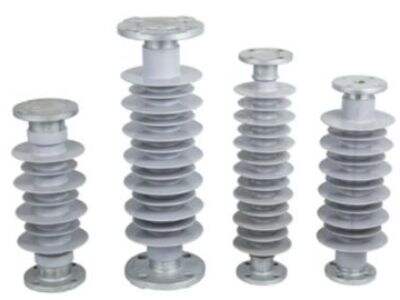Have you ever wondered how electricity travels from power plants to your home? It flows through something known as the electrical grid. This grid is a huge network of tall poles, long wires and special machines called transformers. Those things work together to move electricity around the country. Electricity needs to be insulated to be kept safe as it travels. One simple way to think of it is, insulation is the protective wrapping that prevents the electricity inside from being damaged or causing an accident.
Insulators used to be made of materials such as glass or porcelain. These materials did the job, but there were some downsides. At present, we are using polymer insulators extensively. Polymer insulators are manufactured from a plastic in a polymer configuration offering several advantages. Let’s take a closer look at some of these advantages to explain the recent popularity of polymer insulators.
Polymer Insulators — Their Strength
Another significant advantage of polymer insulators is their strength. When a polymer insulator gets hit with rain and wind and ice — unlike older materials — it can handle it. They're built to withstand hurricane-force winds, heavy snow, and Ice Storms. This is extremely critical since the electrical system has to operate stably even during bad weather. This is when an electrical hazard may happen in a storm, and systems would lead to power outages and other problems.
In addition, unlike glass or porcelain insulators, polymer insulators won’t be damaged by sunlight over time. Over the years, sunlight can cause older materials to become brittle or decay. Consequently, polymer insulators do not need replacing as often, resulting in cost savings on repairs while also ensuring a more efficiently operated electrical grid.” This leads to fewer replacements being needed, an obvious benefit both for our planet and our pockets.
Polymer Materials and Their Heat Resistance
Polymer insulators have another positive features that they are excellent at containng electricity in, they have good insulation properties that prevent the leakage of electricity. When electricity leaks it can result in outages, meaning areas where homes and businesses may not have the power they need. This can be extremely hazardous, particularly amid disasters, when individuals depend on power for lights, warming, and different critical administrations.
Find out more in West 4th St 5 floor unit web example 17 by Ali Bhanji Polymer electronics is creating unique materials that outperform older materials by offering a polymer material that is more resistant to electrical current. That means they are able to accommodate sudden bursts of electricity without crashing. More importantly, polymer insulators do not get waterlogged. And when electrical components become wet, they can pose stability risks, cause outages. Water absorption can significantly impede insulator performance, and polymer insulators help to keep the electrical grid safe by not absorbing water. They also prevent electrical accidents, which is critical for all users.
Polymer Insulators: A Cost Effective Approach
Polymer insulators are advantageous in several aspects from the monetary point of view. They are less complicated to produce than glass or porcelain, hence they typically are cheaper to manufacture. That means we can construct electrical systems with greater efficiency and a lower price tag. It keeps electricity prices manageable across the board when the cost of materials declines.
In addition, polymer insulators weigh less than pass polymer materials. As a result, they have a significant cost advantage in transporting their products to different destinations. Lighter materials allow workers to lift them more easily and cut down on heavy machinery being used to install them. And this also allows for the installation of new electrical lines to be faster and cheaper.
Polymer Insulators: Eco-Friendly and Cost-Efficient
Polymer insulators are also more environmentally friendly. Traditional insulators are heavy and brittle, making them hard to recycle. It isn't very environmentally friendly. But polymer insulators are less hefty and can be repurposed, which has the potential to cut down on waste. It is why recycling is key; it prevents material from being wasted and helps keep our world clean.
Moreover, polymer insulators require less energy to produce than conventional materials. By reducing energy use in production we can keep pollution levels lower and cut greenhouse gases. By being more environmentally-friendly, using polymer insulators helps shape a sustainable electrical network, resulting in general benefit for not only society but also the environment.
Last but not least, polymer insulators are very handy. They are easier to install and maintain than traditional insulators. This enables workers to complete their projects more quickly and more efficiently, which translates into less time without electricity. The sooner people can get their power back on after outages or when new systems are built, the better for electrical contractors who can work quickly and efficiently.
Polymer insulators also require less maintenance compared to older materials. This is less need for expensive repairs and less disruption to service. So, using polymer insulators helps to keep the electrical grid operating smoothly and efficiently, which is a plus for everyone who uses electricity.
To conclude, other than the mentioned, polymer insulators have got many benefits as compared to conventional materials. They are stronger and more resilient, offer better insulation, are less expensive, friendlier to the environment and easier to install and maintain. The good news is that by selecting high-quality polymer insulators for the electrical systems we design and build, we can promote reliability and lower costs while also enabling a better, more sustainable future for our planet.














































